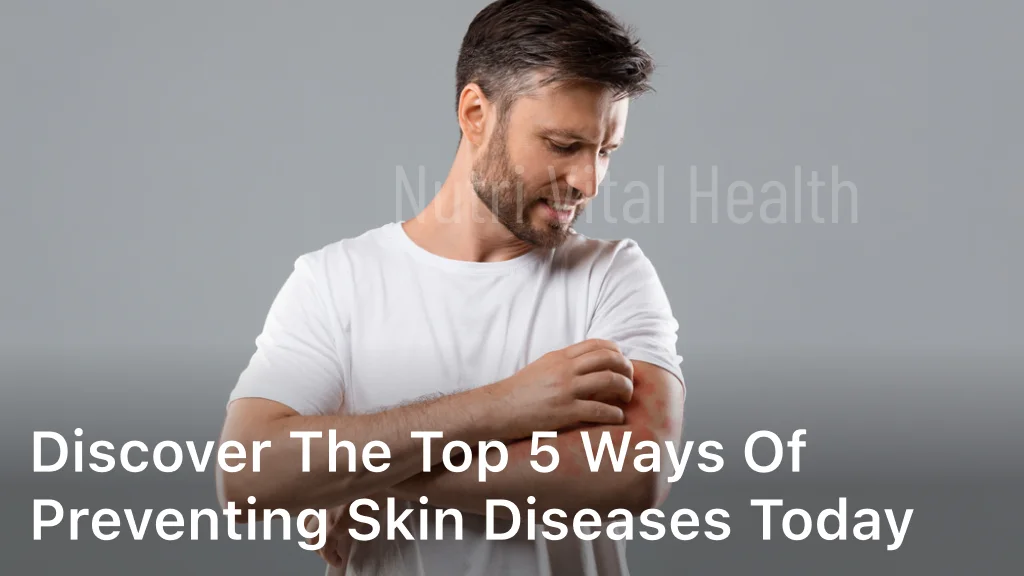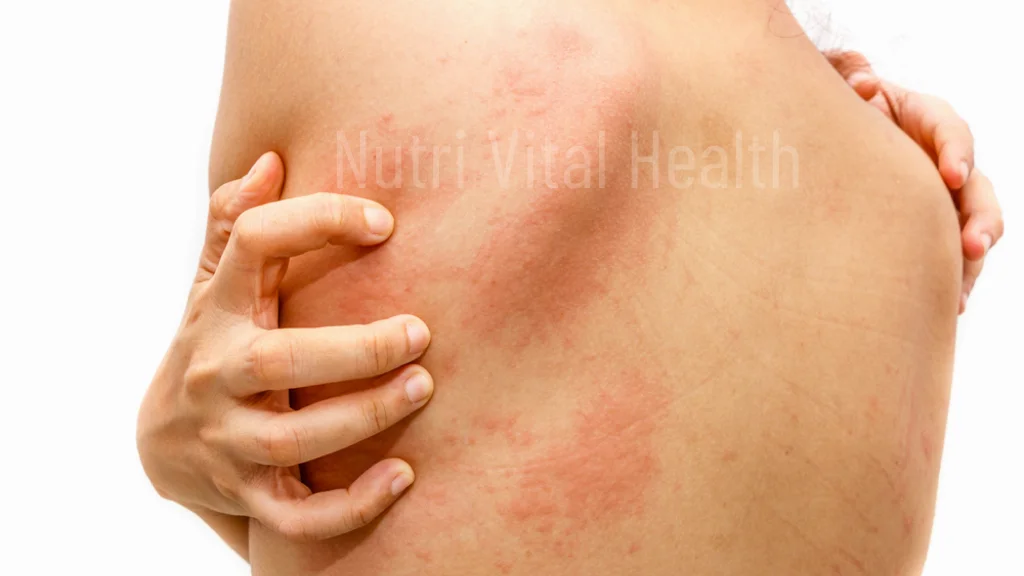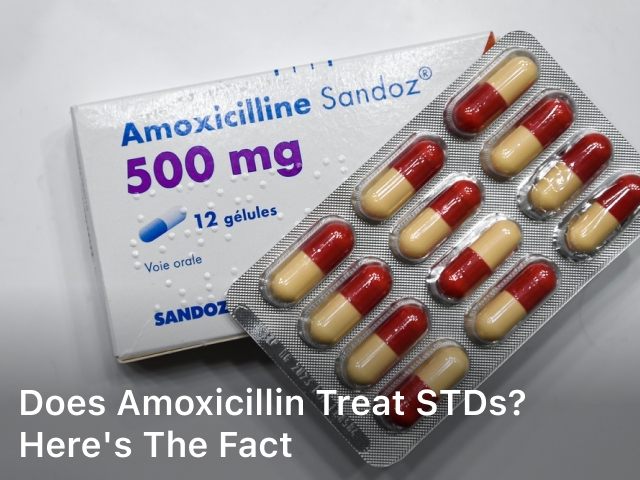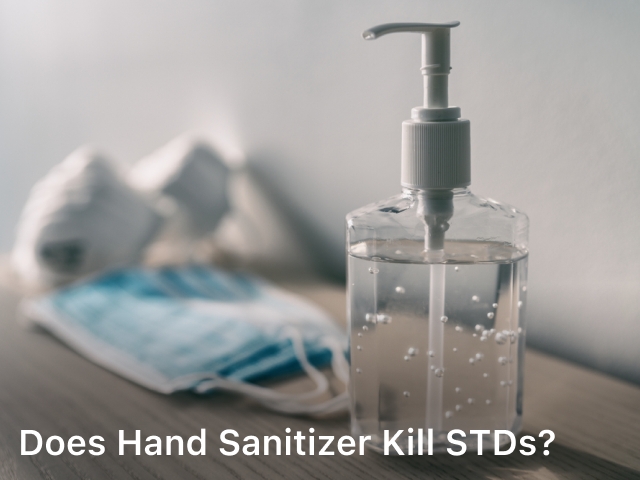Discover the Top 5 Ways of Preventing Skin Diseases Today

nutrivitalhealth.com. Discover the Top 5 Ways of Preventing Skin Diseases Today – Unlock the secret to clear skin with us! Explore 5 ways of preventing skin diseases and stay confident. Start your journey towards better skin health today.
Are you tired of dealing with skin issues that leave you feeling insecure and less confident in your own skin? The good news is that there are simple yet effective ways to prevent skin diseases and promote healthier skin.
In this section, we will explore the top 5 ways you can achieve clear, healthy skin and maintain confidence in your appearance.
5 Ways of Preventing Skin Diseases
Key Takeaways:
- Proper hygiene practices are crucial in preventing skin diseases
- Protecting your skin from the sun’s harmful UV rays is essential for maintaining skin health
- A balanced and nutritious diet helps nourish the skin from within
- Managing stress can minimize the risk of developing skin issues
- Avoiding harmful substances can reduce skin damage and improve overall skin health
Proper Hygiene Practices
At the core of healthy skin lies proper hygiene practices. Good hygiene habits can prevent the buildup of dirt, oil, and bacteria that clog pores and lead to skin diseases. Here are some essential practices to keep in mind:
- Wash your face and body regularly: Use a gentle cleanser to remove dirt, oil, and sweat from your skin. Washing your face twice a day and your body daily can help prevent the buildup of bacteria that cause acne and other skin issues.
- Maintain good hand hygiene: Our hands are exposed to various bacteria and viruses that can cause skin infections. To prevent the spread of these harmful microorganisms, it’s important to wash your hands frequently, especially before touching your face or applying skincare products.
- Avoid touching your face: Our hands can also transfer oil, dirt, and bacteria onto our face, clogging pores and causing acne. Try to avoid touching your face as much as possible or only do so with clean hands.
In addition to these practices, make sure to change out of sweaty clothing and shower after exercising to prevent the buildup of sweat and bacteria on your skin. By incorporating these proper hygiene practices into your daily routine, you can prevent skin diseases and maintain healthy, smooth skin.

Protect Your Skin from the Sun
Protecting your skin from the sun is one of the most important measures you can take to prevent skin diseases and maintain healthy skin. Sun exposure can cause skin damage, premature aging, and skin cancer. Here are some ways to protect your skin from the sun:
Use Sunscreen
Apply sunscreen with an SPF of at least 30 every day, even when it’s cloudy outside, and reapply every two hours. Make sure to use enough sunscreen to cover all exposed skin, including your face, neck, and ears. Look for broad-spectrum sunscreen that protects against both UVA and UVB rays.
Wear Protective Clothing
Wear clothing that covers your skin, such as long-sleeved shirts, pants, and wide-brimmed hats. Dark colors and tightly woven fabrics offer more protection than lighter colors and loosely woven fabrics. Some clothing is designed specifically for sun protection and has a UPF (ultraviolet protection factor) rating.
Seek Shade
Avoid being outside during peak sun hours, which are between 10 a.m. and 4 p.m. If you must be in the sun during these hours, seek shade under a tree, umbrella, or other shelter.
Protect Your Eyes
Wear sunglasses that block UV rays to protect your eyes and the skin around them.
By following these measures, you can protect your skin from the sun and reduce your risk of skin diseases. Take care of your skin today for a healthier tomorrow.
Maintain a Healthy Diet to Prevent Skin Diseases
Eating a balanced and nutrient-rich diet is essential for overall good health, including healthy skin. Consuming the right foods can provide your skin with the necessary nutrients to keep it looking and feeling healthy.
Some of the key nutrients that contribute to skin health include antioxidants, vitamins A, C, and E, as well as essential fatty acids. Antioxidants help to protect the skin against damage from environmental stressors, while vitamins A, C, and E promote skin cell repair and regeneration. Essential fatty acids, such as omega-3s, help to strengthen the skin’s barrier, improving moisture retention and preventing dryness.
| Food | Nutrient |
|---|---|
| Berries | Antioxidants |
| Sweet Potatoes | Vitamin A |
| Citrus Fruits | Vitamin C |
| Nuts | Vitamin E |
| Fatty Fish | Omega-3 Fatty Acids |
In addition to incorporating specific foods into your diet, it’s also important to maintain a well-rounded and plant-based diet. Eating a variety of fruits, vegetables, whole grains, and lean proteins can provide your body with the necessary nutrients to promote overall health, which in turn helps to maintain healthy skin.
On the other hand, consuming a diet high in processed foods, sugar, and unhealthy fats can contribute to inflammation in the body, which is linked to various skin conditions such as acne, psoriasis, and eczema.
By making simple dietary changes, such as incorporating more fruits and vegetables, swapping out processed snacks for healthier options, and reducing your sugar intake, you can give your skin the nutrients it needs to stay clear and healthy.
Practice Stress Management to Prevent Skin Diseases
Stress is a common factor that affects our physical and mental health. It is also known to be a contributing factor to various skin conditions, such as acne, eczema, and psoriasis. To prevent these skin diseases, it is important to make stress management a part of your daily routine.
The Science Behind Stress and Skin Diseases
When we experience stress, our body produces a hormone called cortisol. This hormone can increase oil production in the skin, leading to clogged pores and acne breakouts. Cortisol can also trigger inflammation in the body, which can worsen skin conditions like eczema and psoriasis.
Effective Stress Management Techniques
Managing stress can promote healthier skin and overall wellbeing. Here are some effective stress management techniques that you can try:
- Exercise: Physical activity can help reduce stress by releasing endorphins, also known as the “feel-good” hormone. Try incorporating at least 30 minutes of exercise into your daily routine.
- Meditation: Meditation and deep breathing exercises can help calm the mind and reduce stress levels. Find a quiet place and spend at least 10 minutes each day meditating or practicing deep breathing.
- Hobbies: Engaging in activities you enjoy can help take your mind off stressors and promote relaxation. Whether it’s reading, gardening, or painting, find a hobby that you enjoy and make time for it regularly.
Make Stress Management a Priority
Preventing skin diseases involves making positive lifestyle changes, including managing stress. As we’ve seen, stress can significantly impact our skin health.
By incorporating effective stress management techniques into your daily routine, you can reduce stress levels and improve your overall wellbeing. Let’s make stress management a priority, and enjoy clear, healthy skin.
Avoid Harmful Substances to Prevent Skin Diseases
Protecting our skin from harmful substances is crucial when it comes to maintaining good skin health. Certain chemicals and substances can cause skin irritation, allergies and even chronic skin conditions.
Avoid Excessive Alcohol Consumption
Excessive alcohol consumption can dehydrate the skin and cause it to become flaky, dry, and dull. It also increases the skin’s sensitivity to UV radiation, making it more prone to sun damage and wrinkles. To keep your skin healthy and radiant, limit your alcohol consumption and drink plenty of water to keep your skin hydrated.
Avoid Tobacco Smoke
Smoking is harmful to the skin in many ways. It reduces blood flow to the skin, which can lead to wrinkles, premature aging, and skin cancer. It also damages collagen and elastin, two essential proteins that keep the skin firm and elastic.
Avoid Harsh Chemical-Based Skincare Products
Harsh chemical-based skincare products can disrupt the skin’s natural pH balance and cause irritation, inflammation, and breakouts. Always read the label before buying any skincare product, and opt for products that contain natural, gentle ingredients that suit your skin type.
Avoid Exposure to Toxins
Exposure to toxins such as pesticides, heavy metals, and pollution can damage the skin and cause various skin disorders. Avoid exposure to toxins as much as possible, and take measures to protect your skin when exposed to them.
By avoiding harmful substances, we can prevent many skin problems that might arise from our daily habits. Let’s take care of our skin by avoiding these harmful substances and promoting healthy skin practices.
Conclusion
In conclusion, preventing skin diseases is essential for achieving better skin health. By implementing these top 5 ways, we can significantly reduce the risk of developing skin conditions and maintain clear, healthy skin.
Remember to maintain proper hygiene practices, protect your skin from the sun, eat a healthy diet, practice stress management, and avoid harmful substances. Incorporating these habits into our daily routine can make a remarkable difference in our overall well-being and confidence.
FAQ
What are the top 5 ways of preventing skin diseases?
The top 5 ways of preventing skin diseases are maintaining proper hygiene practices, protecting your skin from the sun, maintaining a healthy diet, practicing stress management, and avoiding harmful substances.
How do proper hygiene practices help prevent skin diseases?
Proper hygiene practices, such as regularly washing your face and body with a gentle cleanser, help remove dirt, oil, and bacteria that can clog pores and lead to skin issues. Good hand hygiene and avoiding touching your face also help prevent the spread of bacteria and viruses that can cause skin infections.
How can I protect my skin from the sun?
To protect your skin from the sun, you should apply sunscreen with at least SPF 30, wear protective clothing, and seek shade during peak sun hours. These steps are essential in safeguarding your skin from harmful UV rays, which can lead to skin cancer, premature aging, and other skin conditions.
How does maintaining a healthy diet prevent skin diseases?
A balanced and nutritious diet, including foods rich in antioxidants, vitamins, and minerals, supports skin health and helps prevent skin diseases. Including fruits, vegetables, whole grains, lean proteins, and healthy fats in your diet nourishes your skin from within.
What role does stress management play in preventing skin diseases?
Chronic stress can contribute to various skin conditions, such as acne, eczema, and psoriasis. Engaging in stress management techniques like exercise, meditation, deep breathing, and hobbies can help maintain a healthy mind and body, promoting healthier skin.
Why should I avoid harmful substances to prevent skin diseases?
Certain substances can irritate the skin and increase the risk of developing skin diseases. It’s important to avoid excessive alcohol consumption, tobacco smoke, and harsh chemical-based skincare products. Opting for gentle, natural skincare products that suit your skin type can minimize damage and reduce the likelihood of skin issues.





